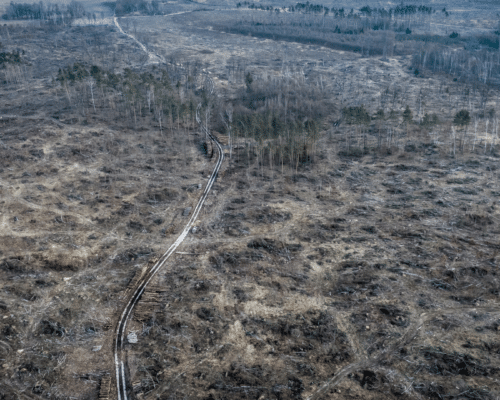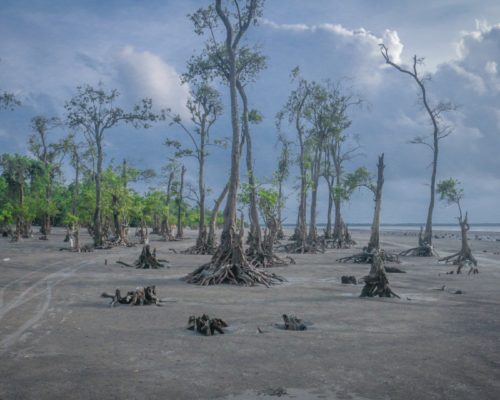South Korea Needs Leadership and Unity to Tackle Climate Change
28 March 2022 – by Woohyun Kwon
Yoon Suk-yeol of South Korea’s conservative party, the People Power Party, won the country’s recent presidential election. The election went down as one of the most divisive in South Korea’s history. It revealed domestic chasms across generations, genders, social classes and regions.
Candidates Neglected the Debate on Climate Change in South Korea
After the votes were counted, Yoon received 48.5% of the votes against his rival, Lee Jae-myung, who received 47.8% of the votes. Yoon’s margin of victory can be attributed to the two candidates’ heated, negative campaigning. This deprived the nation of a chance to see its two leading candidates debate on more important and urgent issues. Both candidates neglected to talk about climate change, despite the gravity of the issue.
Yet, there was some discussion on it. Lee, from the current administration’s party, failed to outperform Yoon in his climate pledges during the election race, many of which did not improve on the outgoing government’s policies. This highlighted the worrying fact that both Yoon and Lee hold the issue in low regard.
The Post-election Reaction
After this contested election, Yoon now vows to bring national unity to the nation, despite using tactics to split the nation into two in order to win. As the new leader, he needs to stop using destructive tactics, as he did in the election, against his rivals. He must also begin to address the global challenges of climate change that he intentionally overlooked during his campaign. This, of course, depends on whether Yoon and his party can understand the issue.
Yoon said he would retain the current government’s 2050 net-zero goal and 2030 emissions reduction targets as a candidate. On the other hand, it seemed as though he did not actually want to achieve them by giving little evidence of his intentions. Despite this, Yoon has no choice but to stick to these commitments. However, it looks like he’s planning to change how South Korea gets there.
He has repeatedly said that the industry’s reduction rate of 14.5% to reach the 2030 target is too high. Moreover, he has pledged to make revisions. However, industry targets are already too low to significantly reduce carbon emissions by 2030. These concessions would allow the industry to, more or less, go on with business as usual. Ultimately, this will make reaching net-zero targets much more challenging over the next eight years.
What Is Yoon’s Climate Vision?
Yoon’s climate vision relies heavily on the market system and new technologies to address climate change. However, he does not have any climate-specific pledges. Instead, the issue of climate change remains scattered across other pledges, such as “support for small-medium sized enterprises”, “scientific technology”, and “quality jobs”. In effect, he has simply listed incentive measures to support corporate ESG management without providing any regulations. This is despite the fact that corporations are both major sources of emissions and are huge energy consumers.
While the president-elect has defined “net zero” as a national challenge, pledging to invest in strategic technologies and help attract private investment, he also has stressed the importance of small nuclear reactors and technologies like new batteries and fuel cells for transport.
This isn’t to say that Yoon should not invest in these technologies or support this type of research or development. However, Yoon will be the president during a critical period – the so-called “golden hours”. This is when the globe must drastically reduce its emissions, with the goal of carbon neutrality by 2050 to avoid catastrophic climate change. On its face, Yoon’s pledges seem as though he is passing on the burden of transformation to the next generation.
What’s Next for South Korea and Climate Change?
Worryingly, Yoon and his party have previously opposed solutions like renewable energy. This tactic, however, was merely used to oppose the outgoing president, Moon Jae-in, and his energy transition policy. Yoon has instead praised nuclear power, arguing that it is the most effective way to cut emissions, as it is emission-free. However, uncertainty still surrounds the energy source due to safety and waste concerns. Keeping a divisive stance will only fuel unnecessary disputes. Furthermore, it will cause South Korea to waste critical time tackling climate change.
As the incoming president, Yoon should do what is right and urgently needed. He must stop applying his “winning tactics” that only serve to divide people. Climate change will affect us no matter which side we stand on – the left or the right, liberal or conservative – whereas only unity can address this global challenge.
—-
Woohyun Kwon is an activist for climate change and energy transition at the Korea Federation for Environmental Movements.
The Korea Federation for Environmental Movements is a non-profit organisation in South Korea focusing on environmental issues. The group was founded in 1993 while campaigning against industrial pollution. It now acts as a platform for civil society and is a member of Friends of the Earth International.
—-
Disclaimer: The views and opinions expressed in this article are those of the authors and do not necessarily reflect the official policy or position of Energy Tracker Asia.


